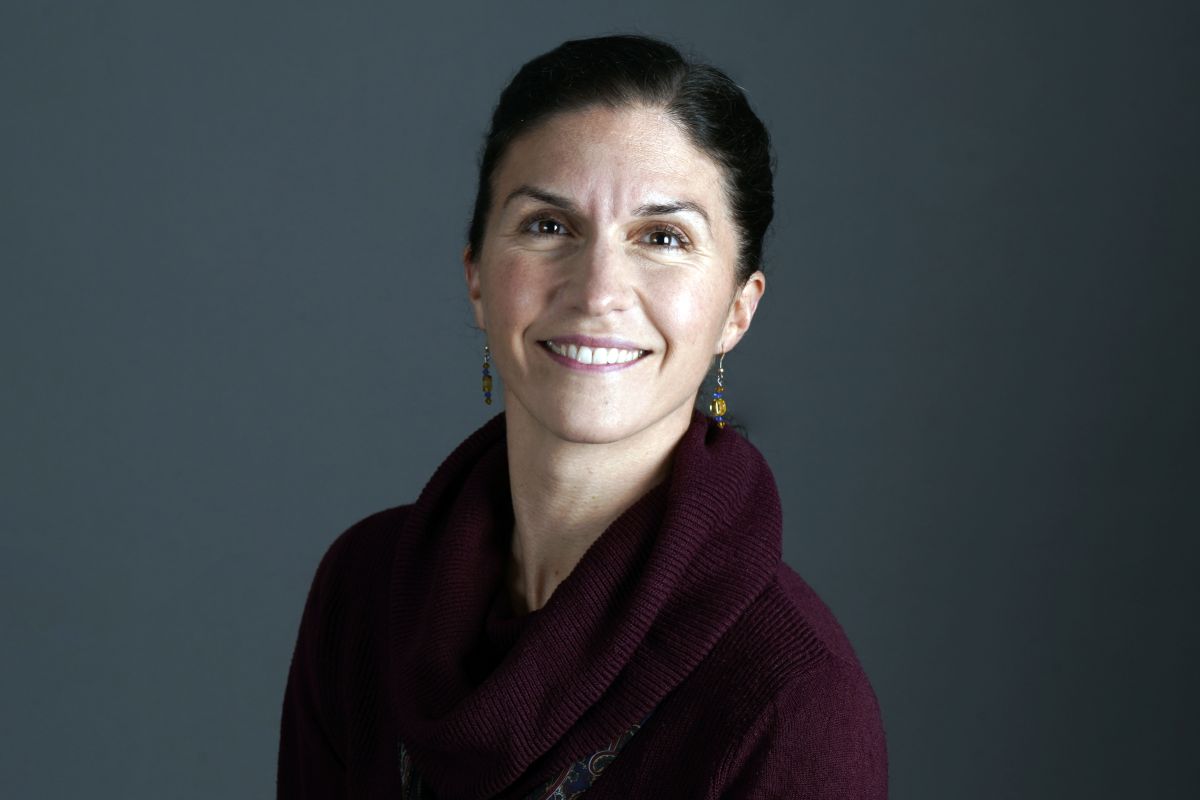Sarah Wroth: My name is Sarah Wroth and I'm the chair of the Ballet Department at the Jacobs School of Music here at Indiana University. And I'm also an alum of this amazing program that I get to be a part of every day.
Aaron Cain: Well, so tell me about the amazing program that's coming up at the Musical Arts Center.
Sarah Wroth: It's a mixed bill, which is what we like so much to offer our students for their curriculum, which means it's multiple different types of movement in one evening of ballet. We start off with Serenade, which is actually the first ballet George Balanchine ever choreographed when he came to these United States, and it kind of started American ballet. It's a ballet that's meant a lot to me in dancing it throughout my career and I'm so excited for the students who get to perform it. It's performed to Tchaikovsky’s Serenade for Strings. Incredible, incredible ballet. Beautiful for the audience. Beautiful for the dancers who get to move through it. The second ballet is a world premiere. It's an incredible opportunity for audiences to witness whimsy in movement on stage. The choreographer’s name is Gianna Reisen and she was the youngest choreographer ever to be commissioned for a piece by New York City Ballet. And she's taken Prokofiev's Symphony Number 5 ,the allegro marcato, and is unafraid to have the dancers move in exactly the way the music is telling her. If she hears a stomp, the dancers are stomping. If she hears something like a choo-choo train, the dancers are making a movement of a train, so she's not beholden to the classical ballet vocabulary, even though you have dancers in dresses, in pink tights, in point shoes, she has liberated herself from the confines of classical ballet. There are classical ballet steps in there, but she also includes moments that are just perfect visual images of this music. And then we have the third ballet on the program, Ballad Unto, choreographed by Dwight Rhoden to Bach. And the Bach music: the Chaconne and the Chromatic Fantasy. One is harpsichord and one is violin. And there's so much space in the Chaconne. It allows for so much space for interpretation. So you're seeing all of Dwight's dreams unfold that can happen to this music. He's choreographed to this particular piece of music four or five different times, which blew my mind to hear because I feel like if I created a work to music, I would have a hard time hearing it in a different way; to create new movement to it. But he thinks there's so much space in that Chaconne—so much space in those pieces of music—he actually can create multiple stories to one. And it's so good for our students at the Jacobs School of Music. We have live accompaniment. And accompanying ballet is very nuanced because the Chaconne by a violinist could be any number of minutes long. It could be pulled out and teased into a 22-minute piece, or it could be played quickly and be much shorter. So the consistency that the interpretive artist—that is, the violinist—has to deliver to match the dancers such that it doesn't end up being an unpredictable experience, is an interesting challenge for these artists.
Aaron Cain: So, as chair of the Ballet Department, what are some of your thoughts here at the end of an academic year with this group of dancers who've been working with for this year?
Sarah Wroth: I'm always just so proud by the time we get to a performance, because I feel like we try and operate as a professional company housed within a major university. Not in the way we necessarily treat each other, but in the standard we set for the expectation that we deliver on the stage. Each one of these dancers rises to the challenge of the professional world that myself and all of my colleagues on the faculty set. Which is what we're about. We want dancers to “feel all the feels” of a performance. It's that nervous energy everyone gets to experience at a time of performance anxiety in their life. And the more you experience that discomfort—that glorious discomfort of caring so much about something that it makes you queasy—the more they can experience that, the more they learn to cope with it, and the better they'll do when they get into an audition or a scenario where they're performing for a professional company.
Aaron Cain: Well, Sarah Wroth, toi, toi, toi…
Sarah Wroth: Thank you.
Aaron Cain: …and thank you so much for speaking with me today.
Sarah Wroth: You're welcome.
Aaron Cain: The IU Jacobs School of Music Ballet Theatre presents Spring Ballet, starting Friday night at 7:30 at the Musical Arts Center, with two more performances Saturday at 2:00 PM and 7:30 PM. More information at operaballet.indiana.edu. For WFIU Ats. I'm Aaron Cain.







